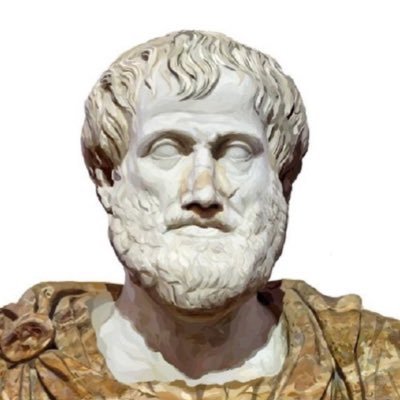
The Eudaimonist
@TheEudaimonist
Followers
6,996
Following
148
Media
338
Statuses
1,139
Reflections on Western tradition | Philosophy, wisdom, society & culture | Seeking the good life
England, United Kingdom
Joined December 2023
Don't wanna be here?
Send us removal request.
Explore trending content on Musk Viewer
and more
• 1829182 Tweets
LINGORM PANTENE TRIP
• 643934 Tweets
Corinthians
• 129786 Tweets
Flamengo
• 129372 Tweets
Al Smith
• 119816 Tweets
Yankees
• 89765 Tweets
Saints
• 87062 Tweets
Schumer
• 66754 Tweets
CONGRATS CL IG1M400K
• 63049 Tweets
Broncos
• 41035 Tweets
Cleveland
• 39792 Tweets
Guardians
• 37030 Tweets
Saint Dr MSG
• 36249 Tweets
Allan
• 35833 Tweets
APT OUT NOW
• 31937 Tweets
depay
• 25706 Tweets
対象作品
• 22886 Tweets
Stanton
• 19077 Tweets
Ganso
• 18647 Tweets
David Fry
• 17499 Tweets
ROSSI
• 17416 Tweets
Yuri Alberto
• 16643 Tweets
Patrick New Single
• 16600 Tweets
#FridayFitness
• 15415 Tweets
Big Christmas
• 15071 Tweets
Bo Nix
• 14685 Tweets
#EliminaçãoAFazenda
• 14541 Tweets
Athletico
• 13794 Tweets
Mookie
• 12936 Tweets
Rattler
• 12901 Tweets
Fernanda Montenegro
• 12209 Tweets
集英社秋マンガチャ開催
• 11297 Tweets
Gabigol
• 10696 Tweets
Drew Brees
• 10096 Tweets
Dennis Allen
• 10009 Tweets
Last Seen Profiles
@Culture_Crit
The fact that they always target the emblems of our cultural identity demonstrates that it’s less about the climate and more about their hatred for the West.
21
41
518
@holland_tom
You’re making an error to think that they actually care about the planet. They don’t. They just hate society.
9
10
305
@Sargon_of_Akkad
“Climate change could cause mass flooding, mass famine, and drought but don’t worry we’ve got a solution.”
“Oh yeah, are there any risks?”
“Yes, mass flooding, mass famine, and drought. Oh and the sky might turn black.”
4
20
222
@jessphillips
I don’t agree with you politically but your treatment has been appalling. There is no space in our democracy for such abhorrent behaviour and everyone, regardless of political persuasion, should be deeply concerned about the vicious sectarianism developing in our politics.
6
1
150
@jollyheretic
This is how the mind virus spreads. Three well-meaning teens, desperate to fit in with their peers and well aware of the social consequences of dissent, scrabbling to find the appropriate doctrine to recite when confronted with the obvious irrationality of everything they’ve been
5
7
114
Fuck the king? How edgy. One day these people will get what they wish for and it won’t be the world they think they’re getting.
When all the last vestiges of tradition, culture, and shared identity are purged from the life of the collective;
when the state comprises of
Idles teaching everyone at Glastonbury the new National Anthem.
I think it’ll catch on.
#Glastonbury2024
443
1K
9K
13
10
96





















































































